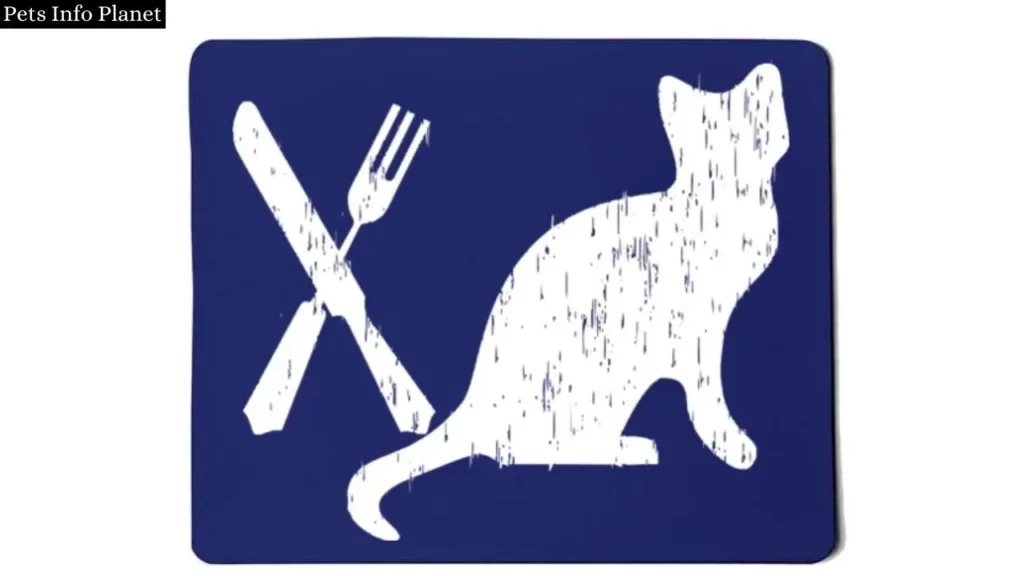Cat eat pussy? You might wonder what it means if you’ve ever encountered this phrase. This comprehensive guide delves into the various interpretations and contexts of “cat eat pussy.” We aim to clarify any confusion surrounding this phrase. Whether it’s a humorous take or a different kind of discussion, we cover all aspects to give you a thorough understanding. From historical usage to modern-day implications, the phrase “cat eats pussy” has a range of meanings that might surprise you. So, let’s explore the curious case of “cat eat pussy” in detail.
The Origins of the Phrase “Cat Eat Pussy”
The phrase “cat eat pussy” is a colloquial expression with a variety of interpretations, often causing curiosity due to its suggestive nature. Historically, this phrase has evolved through different cultural lenses and linguistic uses. In its most innocent form, it refers to the natural behavior of cats as they groom themselves, which includes cleaning their genital area. Cats are known for their meticulous grooming habits, which are a routine part of their daily hygiene.
However, the phrase “cat eat pussy” has also taken on more colloquial and slang meanings over time. In some contexts, it is used humorously or euphemistically to refer to human sexual activities, leveraging the dual meaning of the word “pussy.” This usage can be traced back to various forms of popular culture, including literature, movies, and music, where double entendres and playful language are common.
The phrase may also be seen in different idiomatic expressions or jokes, highlighting the playful and often provocative nature of language. Understanding the origins of “cat eat pussy” requires recognizing these layered meanings and the contexts in which they are used. By examining its historical roots and contemporary uses, we can understand how this phrase has been shaped and reshaped over time.
Modern Interpretations of “Cat Eat Pussy”
The phrase “cat eat pussy” has evolved to carry various modern interpretations, each influenced by cultural, social, and linguistic changes. Today, the word is often understood in different contexts, from humorous and casual to more explicit and provocative meanings.
Pop Culture and Media Influence
In contemporary pop culture, “cat eat pussy” is frequently used humorously or cheekily. It appears in movies, TV shows, and stand-up comedy routines, where double entendres are typical humor. This playful use often leverages the innocent image of a cat’s grooming habits to create a contrast with the more adult, euphemistic interpretation of the phrase. The influence of media has popularized this dual meaning, making it a familiar term in everyday conversations.
Linguistic Playfulness
Another modern interpretation involves the playful use of language. The phrase “cat eat pussy” is a prime example of how words can have multiple meanings and be used creatively. Linguistic playfulness is evident in how people use the phrase in-jokes, puns, and casual dialogues. This flexibility in language allows for a range of expressions, from the innocent to the risqué, showcasing the adaptability and richness of English.
Social and Cultural Conversations
In social and cultural contexts, the phrase “cat eat pussy” can also be part of discussions about language, sexuality, and social norms. It can be used to highlight how language evolves and how societal attitudes toward sex and humor change over time. This aspect of the phrase invites conversations about the appropriateness and impact of certain expressions, reflecting broader cultural trends and shifts.
Internet Memes and Online Culture
The internet has played a significant role in shaping modern interpretations of “cat-eat pussy.” Online memes and social media posts often feature the phrase, exploiting its humorous and sometimes provocative potential. This has led to a proliferation of creative content where the phrase is reimagined and repurposed in countless ways. The digital age has amplified the reach and versatility of such expressions, embedding them deeper into popular culture.
Cultural Perspectives on Cats and Their Behaviors

Cats have held a significant place in various cultures throughout history, with their behaviors often being interpreted and represented in diverse ways. One of the behaviors that commonly attract attention is grooming, specifically when people discuss the phrase “cat eat pussy.” Understanding cultural perspectives on cats and their grooming habits offers insight into how these animals are perceived and symbolized across different societies.
Ancient Egypt: Sacred Symbols
In ancient Egypt, cats were revered and often associated with divine entities. The goddess Bastet is depicted as a lioness or a woman with the head of a lioness or domestic cat, symbolizing home, fertility, and protection. The natural behavior of cats, including grooming, was seen as a reflection of their purity and divine nature. In this context, the act of a “cat eat pussy” would be interpreted as a manifestation of the animal’s instinctual purity and meticulous care for cleanliness, highlighting the sacred and clean aspects of the cat.
Medieval Europe: Superstition and Misunderstanding
During the medieval period in Europe, cats were often associated with superstition and witchcraft. Their nocturnal habits and independent nature made them objects of suspicion. Grooming behaviors, such as when a “cat eats pussy,” might have been viewed with a mix of fascination and fear, potentially seen as a mystical or ominous act. This era’s cultural lens often cast ordinary animal behaviors in a more sinister light, influenced by prevailing superstitions.
Modern Western Culture: Pets and Companions
In contemporary Western culture, cats are seen as beloved pets and companions. Their grooming habits are widely recognized as normal and healthy behaviors. When discussing “cat eat pussy,” most people today understand it as a natural and routine part of a cat’s life. The behavior is often a source of amusement and affection among cat owners, who appreciate their pets’ cleanliness and self-sufficiency. This modern perspective emphasizes the bond between humans and their feline friends, celebrating their quirks and routines.
Eastern Philosophies: Symbolism and Serenity
In various Eastern cultures, cats are often associated with luck, prosperity, and tranquility. For instance, the Maneki-Neko, or “beckoning cat,” is a common talisman in Japan that is believed to bring good fortune. The grooming behavior of a “cat eat pussy” might be seen as a symbol of the animal’s calm and serene nature. In this cultural context, the behavior is appreciated for indicating a peaceful and balanced life, reflecting broader philosophical values of harmony and well-being.
Internet Culture: Humor and Virality
The digital age has brought a new cultural perspective on cats and their behaviors, mainly through memes and viral content. Phrases like “cat eat pussy” often appear in humorous and light-hearted contexts online. The internet has embraced cat behavior’s quirky and endearing aspects, making them a staple of viral content. This modern, digital perspective celebrates the amusing and relatable moments of cat ownership, turning everyday behaviors into sources of widespread entertainment.
Common Misunderstandings About Cats
With their mysterious and sometimes aloof demeanor, cats are often subject to misconceptions that can shape how they are perceived and treated. Addressing these misunderstandings is crucial for promoting a better understanding of these fascinating animals and improving the relationships between cats and their human companions.
Cats Are Solitary Creatures
One common misunderstanding is that cats are solitary animals that prefer to be alone. While cats value their independence, they are also social creatures that form strong bonds with their human caregivers and other animals in the household. Many cats enjoy companionship and affection from humans and fellow pets, debunking the myth of their solitary nature.
Cats Always Land on Their Feet
The belief that cats always land on their feet is another widespread misconception. While cats can twist their bodies in midair to orient themselves, they are not invincible to injury from falls. Cats can still suffer severe injuries if they fall from significant heights, and cat owners must take precautions to prevent such accidents.
Cats Should Drink Milk
Contrary to popular belief, not all cats can tolerate milk, and feeding it to them can lead to digestive upset. Many adult cats are lactose intolerant, meaning they lack the enzyme needed to digest lactose, the sugar in milk. Instead of milk, cats should be provided with fresh water to stay hydrated and healthy.
Cats Don’t Need Regular Veterinary Care
Some people mistakenly believe that because cats are independent animals, they don’t require regular veterinary care. However, just like any other pet, cats need routine check-ups and vaccinations to maintain their health and prevent potential illnesses. Regular veterinary visits are essential for detecting and addressing health issues early, ensuring a longer and happier cat life.
Cats Always Land on Their Feet
The belief that cats always land on their feet is another widespread misconception. While cats can twist their bodies in midair to orient themselves, they are not invincible to injury from falls. Cats can still suffer severe injuries if they fall from significant heights, and cat owners must take precautions to prevent such accidents.
Cats Are Low-Maintenance Pets
While cats are often considered low-maintenance compared to dogs, they still require care, attention, and companionship. Cats need mental and physical stimulation to thrive, including interactive playtime, regular grooming, and a stimulating environment. Neglecting these needs can lead to behavioral issues and health problems in cats.
All Cats Are Aloof and Unaffectionate
Another common misconception is that all cats are aloof and unaffectionate. While some cats may be more independent, many are affectionate and enjoy spending time with their human companions. Building a strong bond with a cat involves understanding its personality and providing it with love, attention, and positive interactions.
Cats Are Not Trainable
Contrary to popular belief, cats are trainable animals that can learn a variety of behaviors through positive reinforcement techniques. While they may not be as easily trainable as dogs, cats can learn commands, tricks, and behaviors to enhance their relationship with their owners. With patience, consistency, and rewards, cats can be taught to do everything from using a litter box to walking on a leash.
Read More:
Conclusion
In conclusion, the phrase “cat eat pussy” encompasses a spectrum of meanings and interpretations, reflecting the complexity and versatility of language. Historically, it has evolved from innocent descriptions of feline grooming habits to colloquial and slang expressions with dual entendres. Modern interpretations span humor, linguistic playfulness, cultural symbolism, and online virality, showcasing the phrase’s resonance in diverse contexts. Whether invoking laughter in pop culture or sparking discussions about societal norms, “cat eat pussy” captures attention and invites exploration.
By examining its origins, contemporary uses, and cultural perspectives, we unravel the layers of meaning embedded within this intriguing phrase. Ultimately, “cat eat pussy” serves as a reminder of language’s dynamic nature and its ability to provoke thought, entertain, and challenge perceptions. So, the next time you encounter this curious phrase, consider how it reflects and refracts our understanding of cats, language, and society.

